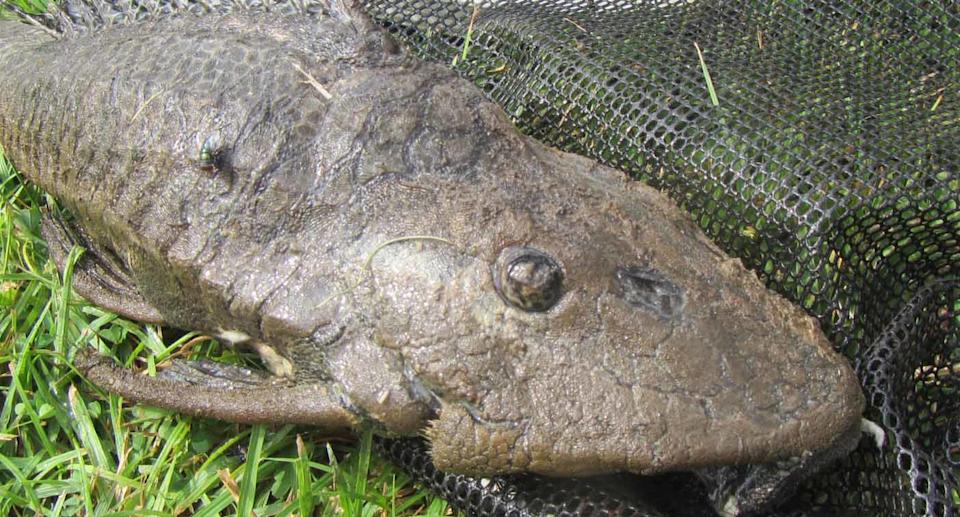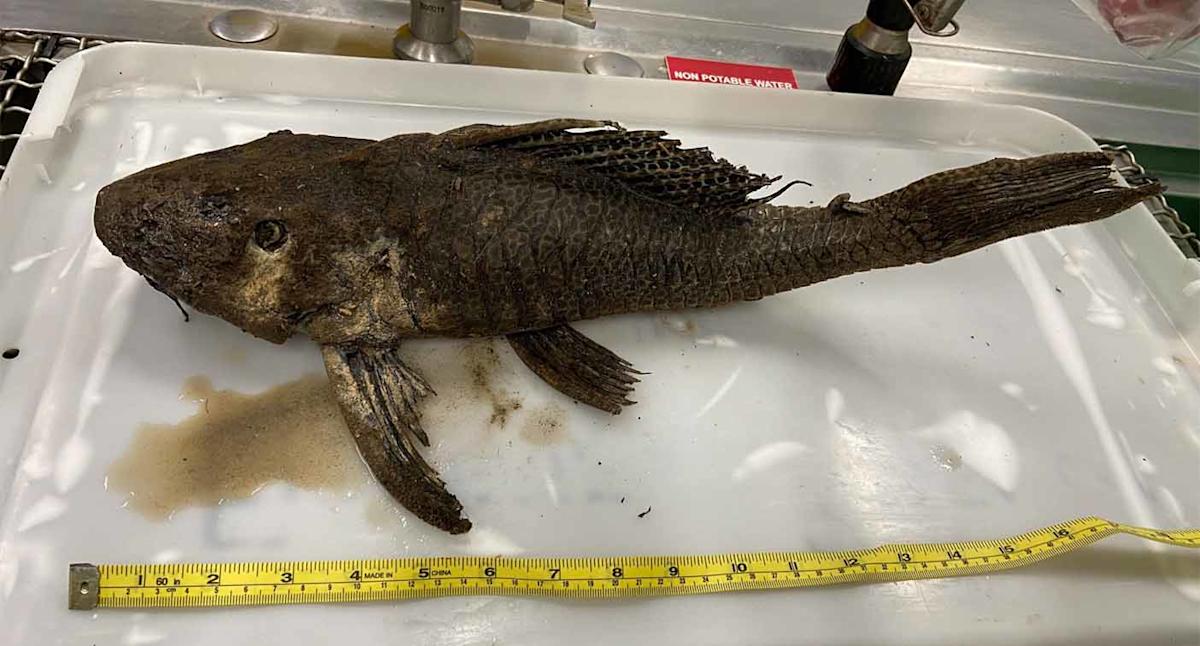Aussies have been issued a stern warning after a runner made an unexpected discovery at a local lake. The jogger, who was making their way around a set of lakes in suburban Darwin, discovered a large fish belly-up in the water.
Measuring a whopping 47 cm, it was quickly discovered that the fish, found at Durack Lakes, was an imported and, more significantly, prohibited species. “Don’t dump your fish,” Fisheries NT warned online this week.
The species, a Sailfin Pleco, is a South American catfish, which is prohibited in Australia under the National Environmental Protection and Biodiversity Conservation Act. The South American fish requires a permit to possess in the Northern Territory.
While the act of dumping a fish at a local waterway may seem innocuous, Dr Carol Booth with the Invasive Species Council warns that it is acts like this that are “Australia’s greatest threats to nature”, describing the incident as a “huge biosecurity threat”.
“It seems benign, but it can lead to environmental devastation,” she told Yahoo News.

This catfish was found upside down in a local lake. Source: Fisheries NT
Exotic fish can wreak havoc on environment
Sailfin Plecos, known as Pterygoplichthys gibbiceps, are a popular aquarium fish due to their striking horizontal stripes and penchant for eating algae.
While they look remarkable, they can grow up to 80cm according to Dr Booth, which she says is “part of the problem” with aquarium fish.
She described dumping a fish in the environment as an “ignorant, dastardly act” because it’s not only bad for the fish if it does survive the change, but also because “it can lead to environmental catastrophe” and it could become invasive.
She said it’s surprisingly common to find aquarium fish in Australian waterways, including the goldfish, tilapia and siamese fighting fish, and called for a national approach to manage and prevent the threat.
“In Australia, the majority of fish that have established [in the environment] have come from aquariums,” she explained. “This sort of thing is one of Australia’s greatest threats to nature”, pointing out that once a fish is established in the wild, it’s rare it will be eradicated.
“It’s an irreversible act in some ways to tip a fish into the wild because they’re so difficult to eradicate,’ she explained.
What’s more, dumping fish can be “really problematic” if those fish spread diseases. “It can cause extinctions,” she warned.
Dr Booth’s main message is “do not ever release a fish into the wild”, adding “do not tip it down the toilet.”
How to get rid of aquarium fish
For those who have unwanted pet fish, NT Fisheries advises to “keep it ethical”.
“Reach out to your local aquarium store or a fish-friendly friend. When rehoming is not possible, use clove oil as recommended by the RSPCA to put them to sleep,” the authority said.
According to the RSPCA, it is the most humane method available to euthanise fish. Clove oil is a sedative, which at high doses can make a fish lose consciousness, stop breathing and die. RSPCA said the fish should be kept in the substance for at least 30 minutes before being put in the freezer until it can be safely disposed of.
Do you have a story tip? Email: newsroomau@yahoonews.com.
You can also follow us on Facebook, Instagram, TikTok, Twitter and YouTube.


